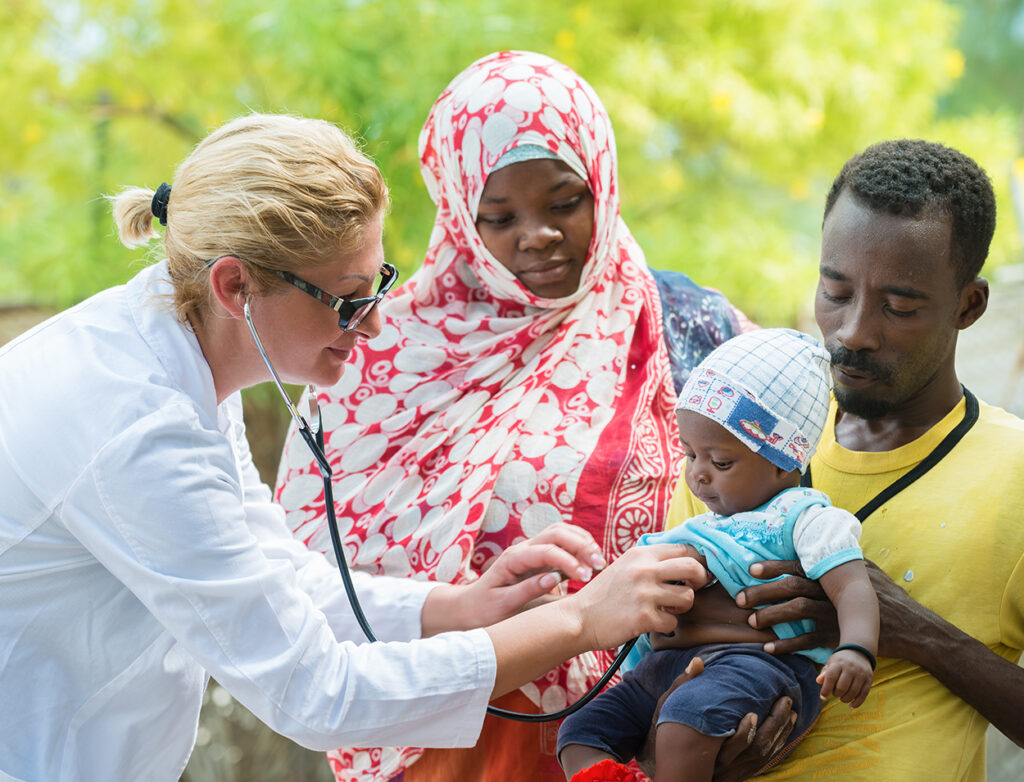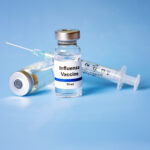Infectious diseases have always played a big role in shaping human history. But, their global impact has never been more apparent than during the COVID-19 pandemic (2020). In this fight, infectious disease specialists have emerged as vital leaders. They didn’t just diagnose infections, they were at the forefront of creating new therapies, developing vaccines, and designing public health strategies. Their relentless work has been essential in mitigating the threats posed by emerging and re-emerging pathogens.
In fact, infectious disease specialists also play a key role in fighting antibiotic resistance – a growing concern in global health (as alarmed by the World Health Organization). Currently, they are leading the charge against this issue by researching alternatives to traditional antibiotics and developing innovative approaches to infection prevention.
To know more about the contributions of ID specialists and why they are hailed as the cornerstone of advancing modern healthcare research, keep reading!
PIONEERING PROGRESS: INFECTIOUS DISEASE SPECIALISTS OVER THE YEARS
Infectious disease physicians have played a pivotal role in shaping global health. Whenever the world faces its greatest threats, these experts step up to the challenge. Their contributions have been transformative, from eradicating smallpox to combating modern pandemics.
Here’s a look at some of the most remarkable milestones made possible through their tireless efforts:
1. Eradicating Smallpox (1980)
The global eradication of smallpox in 1980 is marked as one of humanity’s most significant public health triumphs. Behind this success was the relentless work of ID specialists like Dr. Donald A. Henderson, who led the ‘World Health Organization’s Smallpox Eradication Program’.
Apart from coordinating mass immunization and infectious disease management campaigns, Henderson and his team used epidemiological insights to achieve what was once thought impossible – eliminating a disease that claimed millions of lives annually.
2. Combatting the HIV/AIDS Epidemic (Mid – 1990s)
When HIV/AIDS emerged in the early 1980s, it posed a devastating global challenge. Infectious disease physicians spearheaded efforts to understand the virus, leading to transformative breakthroughs like Antiretroviral Therapy (ART).
Pioneers like Dr. Anthony Fauci helped transform HIV from a death sentence into a manageable condition for millions worldwide.
3. Leading the Fight Against COVID-19 (2020)
The COVID-19 pandemic highlighted the critical importance of infectious disease specialists on a global stage. Experts like Dr. Soumya Swaminathan, WHO’s Chief Scientist, guided research efforts that accelerated vaccine development within a year. This is considered to be one of the most unprecedented achievements in medical history!
Here’s something worth noting – the role of infectious disease specialists did not just stop at curating vaccines. They have also helped develop effective treatments like Monoclonal Antibodies and set protocols for public health responses.
THE ESSENTIAL ROLES OF INFECTIOUS DISEASE SPECIALISTS IN MODERN HEALTHCARE
Now that you have a sense of how infectious disease specialists have shaped history by eradicating or managing diseases, it’s time to explore their work today – and what’s on the horizon for the future.
Here are four keyways they are making a difference today:
1. Expert Diagnosis and Treatment
Infectious disease specialists are adept at identifying infections that confound general practitioners.
For instance, during a severe Fungal Meningitis outbreak in the U.S. (2012) linked to contaminated steroid injections produced by the New England Compounding Center (NECC)., ID experts traced the cause to tainted steroid injections. They swiftly implemented containment measures, saving countless lives!
2. Antimicrobial Stewardship
Antibiotic resistance threatens to undo decades of medical progress. ID specialists lead programs to optimize antibiotic use and preserve their efficacy.
For example, initiatives like the CDC’s “Antibiotic Stewardship Program,” championed by Infectious disease physicians, have significantly reduced unnecessary antibiotic prescriptions in hospitals.
3. Outbreak Management and Prevention

From local hospital outbreaks to global pandemics, ID specialists are at the forefront of containment.
Consider the case of Ebola in West Africa (2014–2016) – specialists like Dr. Peter Piot, who co-discovered the Ebola virus, led efforts to develop rapid diagnostic tools and experimental vaccines. This helped bring the outbreak under control.
4. Research and Innovation
Infectious disease specialists are driving innovations in diagnostics, treatments, and vaccines. Take the example of Dr. Kizzmekia Corbett, who played a pivotal role in the development of the Moderna COVID-19 Vaccine.
Her work exemplifies how specialists bridge research and real-world applications for infectious disease management to save lives.
ARE YOU AN ID SPECIALIST? CONTRIBUTE TO HEALTHCARE RESEARCH!
If you are an infectious disease specialist tackling complex health challenges, you can further amplify your influence and make meaningful contributions to global healthcare. MDForLives offers a unique platform to help you do just that!
Our global community of healthcare professionals allows ID specialists to actively engage in groundbreaking research, collaborate with peers, and contribute to the development of innovative solutions for infectious disease management.
Want to know how MDForLives empowers infectious disease specialists to expand their impact? Read on:
1. Contribute Insights on Emerging Trends and Challenges
MDForLives allows infectious disease specialists to participate in paid surveys for physicians. These surveys are designed to capture expert insights into emerging trends and challenges in infectious diseases – from novel pathogens to evolving infectious disease management approaches.
This collaboration helps shape future research priorities, funding decisions, and clinical guidelines. Specialists can weigh in on critical issues such as antibiotic resistance, emerging viral diseases, or the efficacy of new vaccines.
Their participation ensures that the medical community stays ahead of the curve in tackling infectious diseases.
2. Engage with a Global Network of Experts
MDForLives facilitates peer collaboration by connecting infectious disease specialists from around the world. This network allows specialists to exchange knowledge, share best practices, and discuss the latest infectious disease research and treatment advancements.
Whether it is exploring the latest vaccine developments, novel diagnostic tools, or the most effective infectious disease management strategies, specialists benefit from the collective expertise of a diverse, global community.
3. Influence the Development of New Medical Products/Solutions
One of the best things about MDForLives is the chance it gives infectious disease specialists to help shape the future of healthcare.
Through participation in market research initiatives, specialists can provide invaluable insights into existing treatments, diagnostic tools, and healthcare technologies, helping drive the development of new and innovative medical solutions.
AMPLIFY YOUR IMPACT – JOIN MDFORLIVES TODAY!

As an infectious disease specialist, your role is vital to advancing healthcare. With MDForLives, you have the opportunity to make an even greater impact and drive meaningful change.
This platform allows you to engage with a global network of peers, participate in paid research surveys, and provide insights that can help shape the future of infectious disease treatment.
Whether collaborating on innovative research, influencing new healthcare policies, or contributing to developing innovative medical products, MDForLives allows you to amplify your voice and extend your impact.
Join now and help drive positive change in healthcare!

The creative force behind the keyboard, Pallabi crafts narratives of healthcare wonders and research marvels. As a seasoned professional blogger, she ventures to unearth the riches of medical innovation, weaving them into insightful stories that educate.



